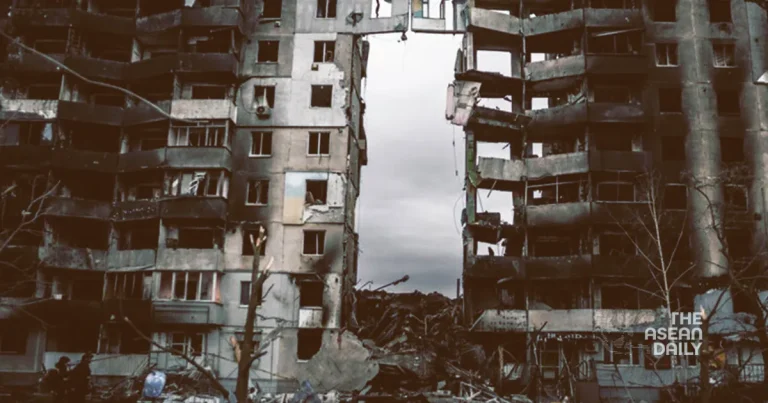2-12-2024 (KYIV) In a striking testament to the emergence of ‘dark tourism’, international visitors are increasingly travelling to Ukraine’s war-ravaged regions, drawn by the haunting remnants of Russia’s invasion and the ongoing conflict that continues to shape the nation’s landscape.
Among these tourists is Alberto Blasco Ventas, a 23-year-old Spanish software engineer, who recently stood before the destroyed Irpin bridge – a strategic structure demolished by Ukrainian forces in 2022 to halt the Russian advance on Kyiv. Despite the capital’s daily exposure to missile and drone strikes, Ventas chose it as his holiday destination.
“Being in a war zone for the first time is intimidating,” admits Ventas, who documented his journey for his 115,000 YouTube subscribers. His path to Ukraine involved navigating family concerns, a flight to Moldova, and an 18-hour train journey.
The controversial trend has spawned numerous Ukrainian tour companies capitalising on this growing market. War Tours, one such operator, reports hosting approximately 30 clients since January, primarily Europeans and Americans, with tour prices ranging from €150 to €250. Company co-founder Dmytro Nykyforov emphasises that the initiative extends beyond profit, focusing on war memorialisation.
For some tourists, like New York-based finance professional Nick Tan, 34, the standard tours aren’t enough. Seeking more intense experiences, he ventured to Kharkiv, merely 20 kilometres from Russian forces. “Western life has become too comfortable,” Tan explains, describing war tourism as his next adventure after exhausting conventional thrills like skydiving and boxing.
This emerging tourism sector has sparked debate among local communities. While some residents, like tourism volunteer Ruslan Savchuk, see potential economic benefits, others view it more critically. Mykhailyna Skoryk-Shkarivska, an Irpin councillor, reveals that some locals consider the profits “blood money” and question tourists’ motivations for witnessing their suffering.
Mariana Oleskiv, head of the National Agency for Tourism Development, acknowledges the ethical complexities but predicts sector growth. Despite the invasion’s initial impact, tourism revenues are expected to surpass 2021 levels, largely driven by domestic travellers restricted by martial law.
Looking ahead, Ukraine is already preparing for post-war tourism, forming partnerships with global platforms like Airbnb and TripAdvisor. “The war has strengthened Ukraine’s global recognition,” notes Oleskiv, as the country recorded 4 million foreign entries last year – double the 2022 figures, though primarily business-related.
Before the war, Ukraine already attracted dark tourism through Chernobyl, site of the 1986 nuclear disaster. Now, as the country adapts to its new reality, this controversial form of tourism continues to evolve, balancing memorial preservation with ethical considerations and economic opportunities.




